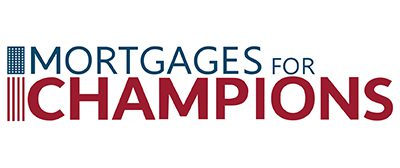Getting a Mortgage: Is Your Interest Rate Critical?
According to S&P Global, the average interest rate for today’s mortgage is 3.1%. However, this is an average for a reason. Many people end up with interest rates that are lower, while many other people end up with interest rates that are higher.
The interest rate that you’re going to get on your mortgage will depend on your credit score, your loan amount, your loan terms, and more.
But, do all of these things really matter? Does your interest rate when you’re getting a mortgage matter?
Keep reading to find out exactly how the interest rate on your mortgage can affect your loan.
How Important Is the Interest Rate When Getting a Mortgage?
A mortgage interest rate, also known as a mortgage rate, is an important number to consider when you’re calculating the total cost of a mortgage. It allows you to see how much you’re paying your lender to borrow the money that you need to pay off the house that you want.
But, it would be unfair to say that the interest rate is critical to your mortgage loan.
The interest rate of a mortgage can tell you a lot about the deal that you’re getting, but it doesn’t tell you the full picture. There are plenty of other loan characteristics that you should consider.
1. Annual Percentage Rate
The annual percentage rate (APR) of a loan may be a better indicator of the costs associated with the loan that you’re getting. The APR takes the interest rate into account as well as the lender’s fees, points, and other charges associated with the loan.
The APR may be a better indicator of the costs of the loan since it considers more than the interest rate.
2. Length of the Loan
Another consideration to make is the length of the loan, also referred to as the loan term. The amount of time that you’re going to be borrowing the money for makes a huge difference in the payments that you’re making towards the loan.
Home buyers who want to dramatically cut the costs of their mortgage loan should consider paying off the loan earlier. In other words, they should agree to a shorter mortgage term.
Reject the traditional 30-year mortgage and opt for the 15-year or 20-year option so that you can save more money over time. You may have higher monthly payments, but you’ll pay less money over time. Plus, you’ll be done paying off the loan much faster.
The shorter loan term can help reduce costs because it helps you pay off the principal faster. Since the principal is the main part of the loan, paying it off can help reduce the interest payments and other fees that you have to pay.
Overall, the length of the loan can tell you a lot about how much you’re actually paying in interest fees. If you pay off the principal quickly, you’re going to save more money in the long run.
3. Communication Options
One of the most ignored loan characteristics has to do with the lender themselves. Many people look at the terms of the loan and ignore the person that they’re working with.
The truth is that you have to consider who you’re working with more than the money that you’re spending. What are a few extra dollars if you can’t reach the person you need to pay?
All in all, you need to consider how you’re going to reach and communicate with the loan officer, who should make communication terms clear and easy for you.
After finding a few loan officers that you like, you should then consider the finances that go into the loan itself.
Conditions That Affects a Mortgage Interest Rate?
Since the interest rate of the loan is the most tangible piece of evidence that many of us use when we’re looking at mortgage loans, we have to consider what’s affecting the interest rate.
Keep in mind that the interest rate does affect the APR, which we previously listed as one of the most important characteristics to consider when choosing a mortgage loan.
1. Inflation
We all know the word, and we all know how it affects the costs of everything. Inflation drives prices up.
Because the current inflation rate is a great indicator of the current state of the economy, it’s important for mortgage lenders to consider the inflation rate when they’re setting their mortgage interest rates.
However, mortgage lenders also have to keep purchasing power in mind. Because inflation decreases purchasing power, lenders have to maintain interest rates for a few years at a time to overcome this erosion.
In other words, they have to keep their interest rates stable for a period of time so that they can calculate their real net profits rather than the profits they supposedly received from inflation.
For example, let’s say that mortgage rates are at 4% and the annual inflation rate is at 2%. This tells us that the real return on the loans that lenders are giving is only 2%. Since they aren’t actually receiving 4%, lenders have to carefully monitor and consider inflation rates when they’re setting interest rates.
2. Economic Growth
Indicators of economic growth can influence mortgage rates as well. A greater rate of economic growth causes higher wages and higher spending.
In turn, high economic growth can lead to more people buying homes.
While this is great for the country’s economy, it can lead to higher mortgage rates. Lenders only have so much money that they can lend. With more people looking for loans, they’re going to lend out more of their money.
So, lenders want to increase the interest rate on that money to make up for the time when they’re losing more money to home buyers.
In economies that aren’t growing, there are fewer people working and fewer people buying homes. So, mortgage rates decline as an incentive for people to buy homes.
3. Federal Reserve Monetary Policy
The Federal Reserve Bank consistently updates its monetary policy. And, one of the things that the monetary policy affects is mortgage rates.
While it doesn’t specifically set the mortgage rate, it does establish the Fed Funds rate and adjusts the money supply. These changes are what establish and change the available mortgage rates.
If the monetary policy increases the current money supply, interest rates will decrease. In turn, a decrease in the current money supply will increase interest rates.
4. The Bond Market
Banks, investment firms, and similar entities take advantage of mortgage-backed securities. These securities work as investments and will attract buyers if the yields are high.
At the same time, government bonds and corporate bonds have competing investments. These investments have fixed incomes and sit for long periods of time.
The money that you can earn from these investments affects the yield that investors get from mortgage-backed securities.
Thus, the bond market can affect how much lenders charge for the mortgages that they’re giving. In order to make mortgage-backed securities competitive, lenders have to make enough money from their loans.
5. Housing Market Conditions
The housing market itself can affect mortgage interest rates.
When fewer people are selling homes, there is a decline in home purchases. This causes a decline in the demand for mortgages and a decline in the interest rates for mortgage loans.
Likewise, an increase in home sales leads to an increase in the demand for mortgages, which increases mortgage rates.
Another factor that can affect mortgage rates is renting.
If more consumers opt to rent homes rather than buy them, this can lead to a decrease in interest rates as well. Since fewer people are buying homes, there is a decrease in the demand for mortgages and a decrease in interest rates for those mortgages.
What Should I Consider When I’m Getting a Mortgage?
Yes, the interest rate of a loan when getting a mortgage is important. Since they’re tied to the basic rules of supply and demand, there are multiple factors (like we just discussed) that affect their fluctuation.
Beyond that, your personal financial health can affect the interest rate that a lender is willing to give you.
A higher credit score will make it more likely that you’re going to get a lower interest rate. Your credit score is the best tool that a lender has to tell how risky (or not risky) you are as a seller.
All in all, you should consider the interest rate of a mortgage. But, it shouldn’t be the sole consideration that you’re making.
To get the bigger picture, you should look at the interest rate, loan terms, loan length, communication guidelines, and more. These small details make a big difference.
Getting a Mortgage With Mortgage for Champions
Getting a mortgage doesn’t have to be difficult. While you’re looking at terms and conditions, you may feel overwhelmed by the options you have (and perhaps even the options that you don’t have).
With our specialized loan programs, you may be able to find the perfect kind of mortgage for you.
Get started today! You can get a free, no-risk mortgage quote right now.
Related Articles – https://www.mortgagesforchampions.com/history-of-the-mortgage-rates/ https://www.mortgagesforchampions.com/purchasing-a-home-heres-what-you-need-to-consider-2/ https://www.mortgagesforchampions.com/first-time-home-buyer-questions-to-ask/ https://www.mortgagesforchampions.com/8-mortgage-mistakes-you-should-not-make/ https://www.mortgagesforchampions.com/are-housing-speculators-driving-up-home-prices/


